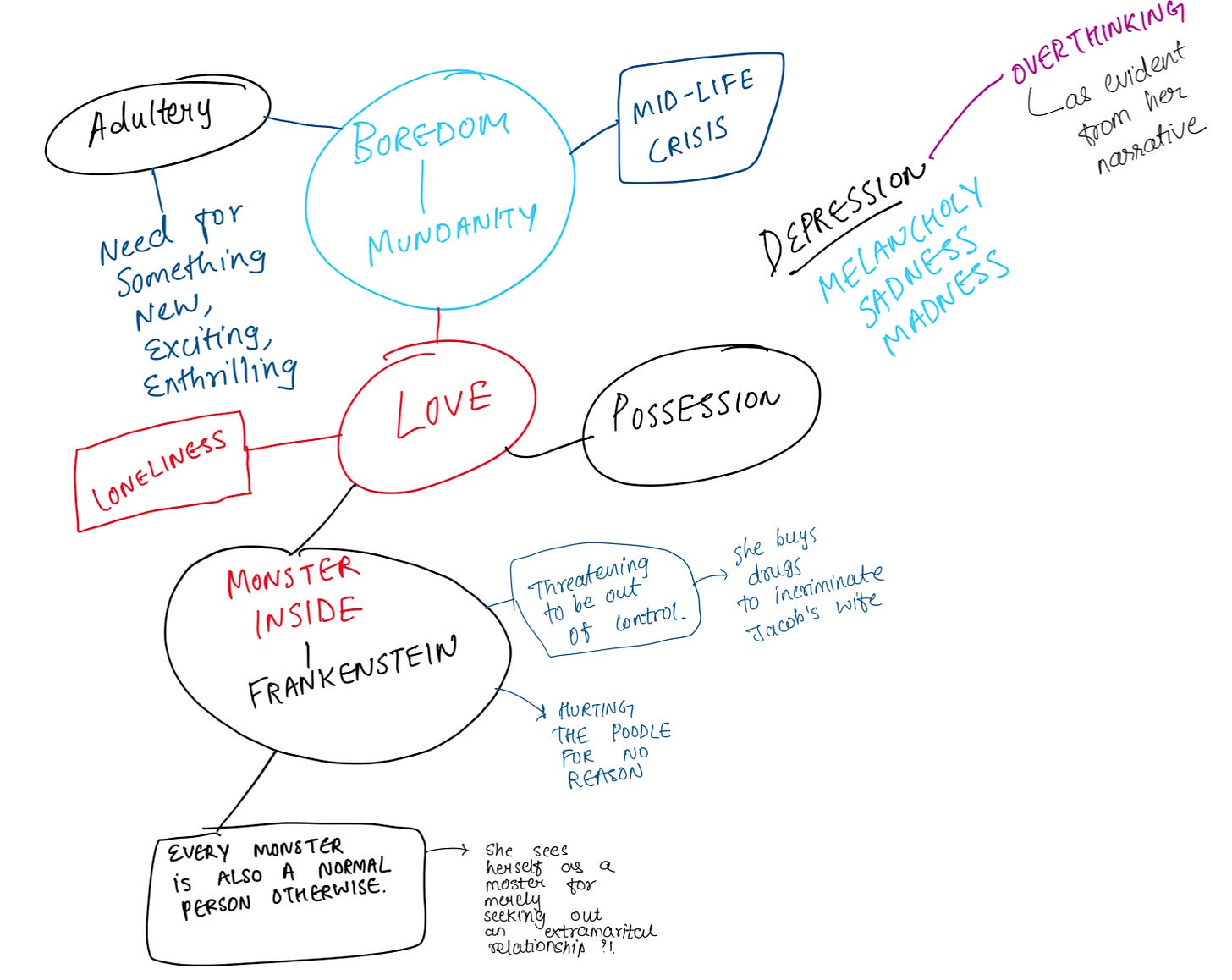“If married people, for whatever reason, decide to look for another partner, this does not necessarily mean that the couple’s relationship is not doing well. Nor do I believe that sex is the primary motive. It has more to do with boredom, with a lack of passion for life, with a shortage of challenges. It’s a combination of factors.”
This one quote, for me, summarizes the essence of the book. Of course, the book is about much more, the themes covered are wider than just adultery – although adultery is at the center of it all. This quote is important because it gave me the answer I was looking for. The question was, “why do people cheat? Why do they commit adultery?”
I could very well have looked for the answer to this question in academic literature, like a research paper. But that would offer only an academic answer to the question. A novel offers realistic answers, actual answers, emotional answers. I’m of the opinion that the understanding of the complex landscape of human mind and human behaviour comes more easily from fiction than psychology. And there was another question: “What goes on in the mind of someone who commits adultery? Do they have guilt? Do they hate themselves? Do they love their partner more – because of the guilt?”
Paulo Coelho’s novel, telling the story of a middle-aged journalist living in the city of Geneva, from the perspective of the protagonist, offered answers to all these questions. As the initial quote said, adultery is not the result of mere lack of love or looking for sex – it’s a combination of a bunch of factors. And it’s not a crime.
I drew up a very rough depiction of these factors and the surrounding feelings while I was reading the book which makes it easier to understand the whole business.
Out of this, I’ll take the time to discuss two themes: The Frankenstein Inside Us, and Loneliness.
The Frankenstein Inside Us
The protagonist not only commits adultery, she also falls in love with the man she’s involved with (or at least she thinks it’s love). And wants to possess him. And for that, she’s willing to go to unimaginable lengths.
That’s when she discovers a monstrosity inside her – the Frankenstein, the Monster, that exists inside all of us, that we all keep under control. It could be anything – anger, destructive tendencies, aggression, cheating tendencies, kinks – anything. We keep it under control, but it exists. And our protagonist’s quest for love and possession brings her face to face with the monster inside her. And if you’re someone who has come face to face with their own monstrous side, you know it’s an unsettling moment – the mere realisation of your capacity for malevolence and how far it extends is profoundly disturbing. But it’s also necessary to acknowledge the existence of the monster and to try to keep it tamed.
Another quote summarizes this best: “Frankenstein has never gone out of print, because everyone sees a bit of themselves in both the scientist and the monster.”
Loneliness
Another theme explored in the novel is Loneliness – which is one of the factors that lead people to commit adultery. A person can date another person, love them, and still feel lonely. A person can be surrounded by people they love and people who love them back and still harbour a feeling of loneliness. It’s normal. And episodes of a profound feeling of loneliness are something everyone experiences from time to time. The book helps us understand that we’re not the only ones experiencing this: it happens to almost everyone.
Coelho describes the feeling in a way that almost everyone will be able to relate to it and know what exactly he’s talking about (that’s actually his gift as a writer – his ability to put things in words that the rest of us find difficult to summon!):
“Everything is awful. Please, leave me alone, because I have no more tears to cry or heart left to suffer. All I have is insomnia, emptiness, and apathy, and, if you just ask yourselves, you’re feeling the same thing. But they insist that this is just a rough patch or depression because they are afraid to use the real and damning word: loneliness.”




